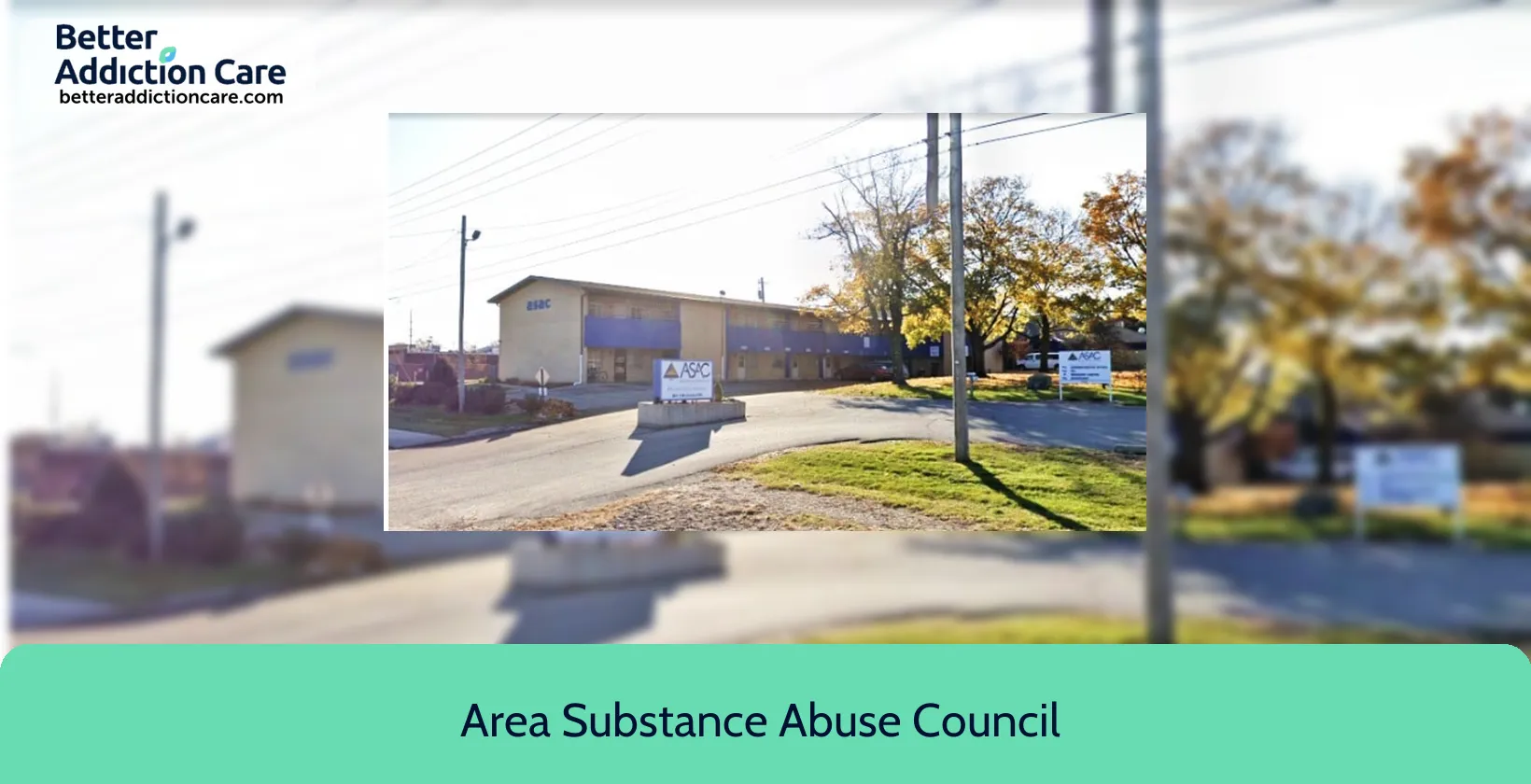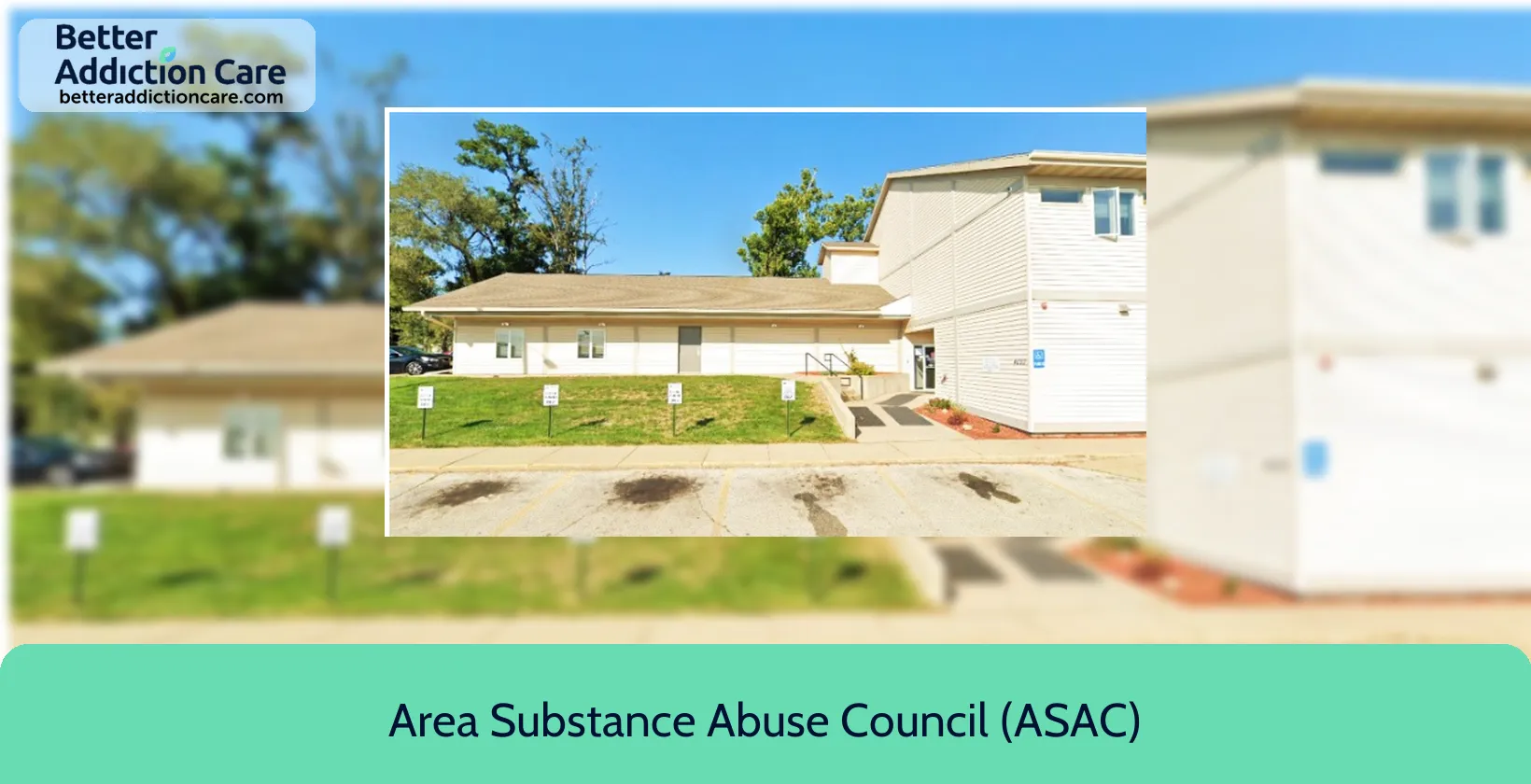Area Substance Abuse Council (ASAC) - Cedar Rapids - Downtown Office

Overview
Area Substance Abuse Council (ASAC) - Cedar Rapids - Downtown Office is a substance abuse treatment center for people seeking treatment near Linn County. As part of their treatment modalities for recovery, Area Substance Abuse Council (ASAC) - Cedar Rapids - Downtown Office provides cognitive behavioral therapy, telemedicine/telehealth therapy, and substance use disorder counseling during treatment. Area Substance Abuse Council (ASAC) - Cedar Rapids - Downtown Office is located in Cedar Rapids, Iowa, accepting cash or self-payment for treatment.
Area Substance Abuse Council (ASAC) - Cedar Rapids - Downtown Office at a Glance
Payment Options
- Cash or self-payment
- Medicaid
- State-financed health insurance plan other than Medicaid
- Private health insurance
- Federal military insurance (e.g., TRICARE)
Assessments
- Screening for tobacco use
- Comprehensive substance use assessment
- Interim services for clients
- Outreach to persons in the community
- Screening for mental disorders
Age Groups
- Seniors or older adults
- Adolescents
- Young adults
- Seniors
Ancillary Services
- Case management service
- Suicide prevention services
- Domestic violence services, including family or partner
- Early intervention for HIV
- Social skills development
Highlights About Area Substance Abuse Council (ASAC) - Cedar Rapids - Downtown Office
6.99/10
With an overall rating of 6.99/10, this facility has following balanced range of services. Alcohol Rehabilitation: 8.00/10, Drug Rehab and Detox: 6.00/10, Insurance and Payments: 6.00/10, Treatment Options: 7.94/10.-
Alcohol Rehabilitation 8.00
-
Treatment Options 7.94
-
Drug Rehab and Detox 6.00
-
Insurance and Payments 6.00
Accreditations
Commission on Accreditation of Rehabilitation Facilities (CARF):

Established in 1966, the non-profit organization known as the Commission on Accreditation of Rehabilitation Facilities (CARF) has a dedicated focus on accrediting rehabilitation organizations. CARF's primary mission is to assist service providers, particularly rehabilitation facilities, in upholding and promoting the highest standards of care.
Treatment At Area Substance Abuse Council (ASAC) - Cedar Rapids - Downtown Office
Treatment Conditions
- Mental health treatment
- Alcoholism
- Substance use treatment
- Co-occurring Disorders
Care Levels
- Outpatient
- Outpatient day treatment or partial hospitalization
- Intensive outpatient treatment
- Regular outpatient treatment
- Aftercare
Treatment Modalities
- Cognitive behavioral therapy
- Telemedicine/telehealth therapy
- Substance use disorder counseling
- Trauma-related counseling
- Smoking/vaping/tobacco cessation counseling
Ancillary Services
Languages
- Sign language services for the deaf and hard of hearing
Additional Services
- Pharmacotherapies administered during treatment
- Mentoring/peer support
- Drug or alcohol urine screening
Special Programs
- Clients with co-occurring mental and substance use disorders
- Veterans
- Active duty military
- Members of military families
- Criminal justice (other than DUI/DWI)/Forensic clients
Get Help Now
Common Questions About Area Substance Abuse Council (ASAC) - Cedar Rapids - Downtown Office
Contact Information
Other Facilities in Cedar Rapids

6.77

6.99

6.59

6.68

6.77

6.89

7.02

6.99
Browse rehab centers near Cedar Rapids and in other cities across Iowa
DISCLAIMER: The facility name, logo and brand are the property and registered trademarks of Area Substance Abuse Council (ASAC) - Cedar Rapids - Heart of Iowa, and are being used for identification and informational purposes only. Use of these names, logos and brands shall not imply endorsement. BetterAddictionCare.com is not affiliated with or sponsored by Area Substance Abuse Council (ASAC) - Cedar Rapids - Heart of Iowa.
